Sexual Harassment and Priorities of Federal Science Leaders Among Topics Addressed
September 2018
On September 16–17, 60 deans and associate deans at colleges of education and leaders at research institutions attended the Fall Policy Meeting of the AERA Consortium of University and Research Institutions (AERA-CURI) in Washington, D.C. The theme of this year’s AERA-CURI Fall Policy meeting was “Enhancing Education Research Capacity and Impact.”
In brief welcoming remarks, AERA Executive Director Felice J. Levine and AERA-CURI Executive Committee Chair Kathryn Chval (University of Missouri) provided an overview of the meeting designed to hit topics of high relevance and salience to CURI members.
|
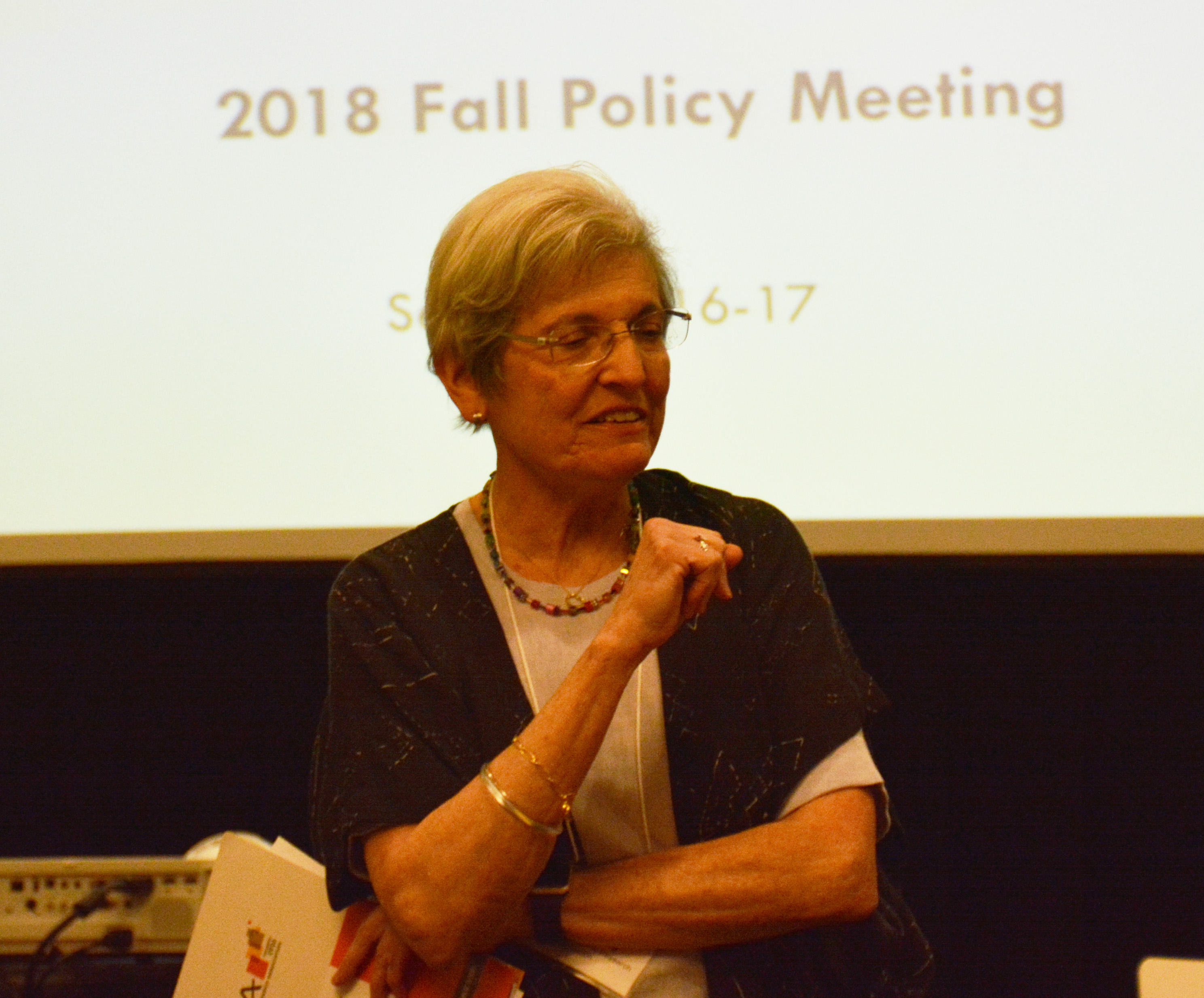
AERA Executive Director Felice J. Levine
|
The meeting kicked off with a panel presentation on scaling up education findings to market.
Christi Bergin, associate dean for research and innovation at the University of Missouri, detailed the opportunities and challenges faculty encountered in their efforts to bring products built on education research to market. Diana Hess, dean of the School of Education at the University of Wisconsin, described how the Wisconsin Center for Education Products & Services supports the scale-up of research through commercialization and works with faculty on licensing, royalties, and copyright issues for research-based products at the School of Education.
|
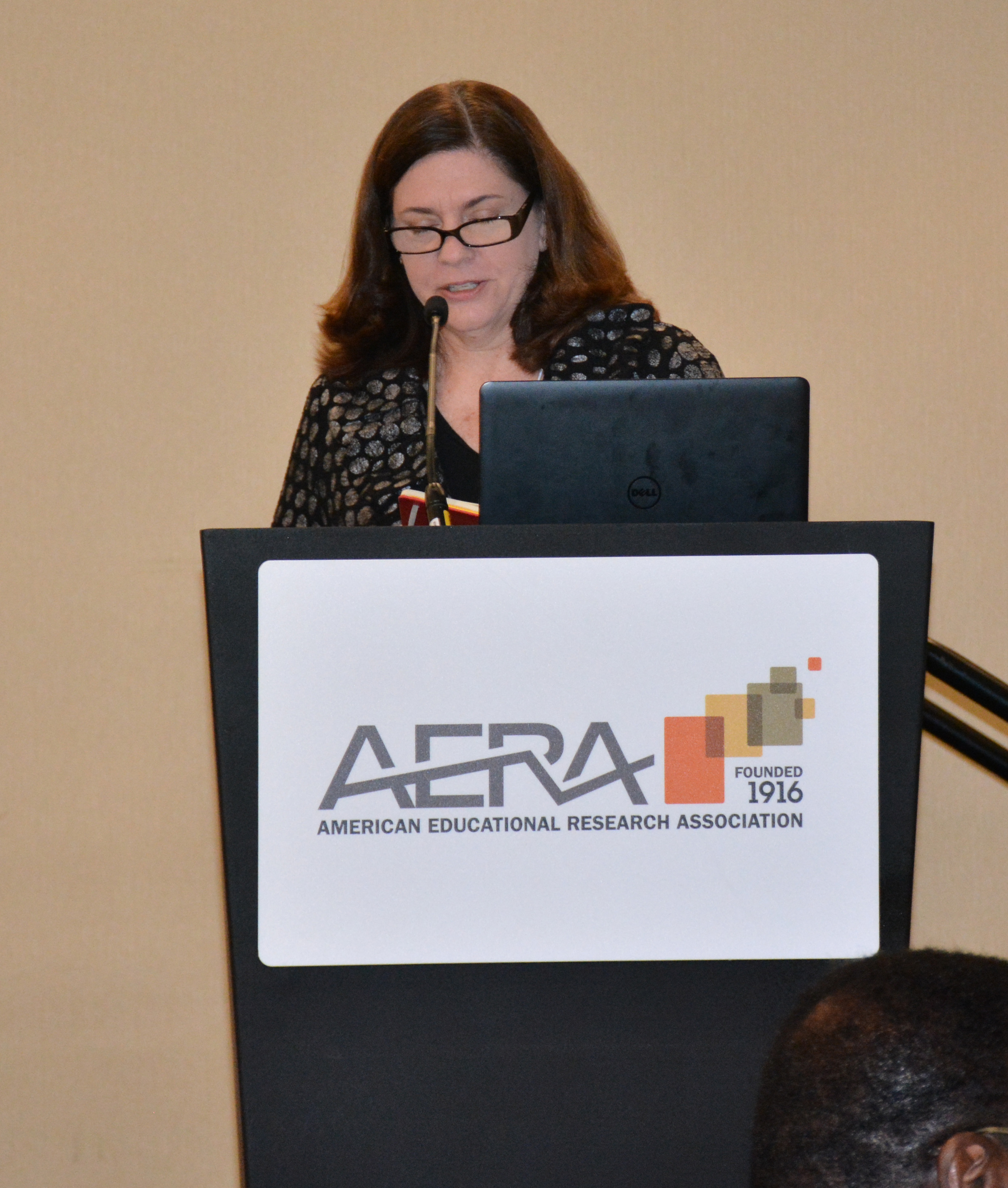
Kathryn Chval (University of Missouri)
|
Chval led several small group activities designed for AERA-CURI members to think about the perspectives of policymakers when talking about the value of education research. Attendees worked on strategies for presenting research findings and actionable items on policy questions to policymakers. Attendees also worked through five case studies on legislative and administration proposals that would negatively impact research funding and education policy.
The second day of the meeting began with a panel discussion, “Creating Work Environments That Best Support Research–Preventing and Addressing Sexual Harassment.” Levine began the discussion with an overview of the activities that AERA has undertaken on this issue and collaborations with the broader scientific community. Billy Williams, vice president of Ethics, Diversity, and Inclusion at the American Geophysical Union, detailed findings and recommendations from the National Academies report, Sexual Harassment of Women: Climate, Culture, and Consequences in Academic Sciences, Engineering, and Medicine.
Rhonda Davis, who leads the National Science Foundation’s (NSF) Office of Diversity and Inclusion, provided an update on the new policy issued on September 21 to address instances of sexual harassment reported by NSF awardees (see related Highlights story). Shirley Malcom, head of Education and Human Resources Programs at the American Association for the Advancement of Science, described SEA Change, a voluntary self-assessment and certification to promote equity in STEM by gender, race, ethnicity, and intersections of the three.
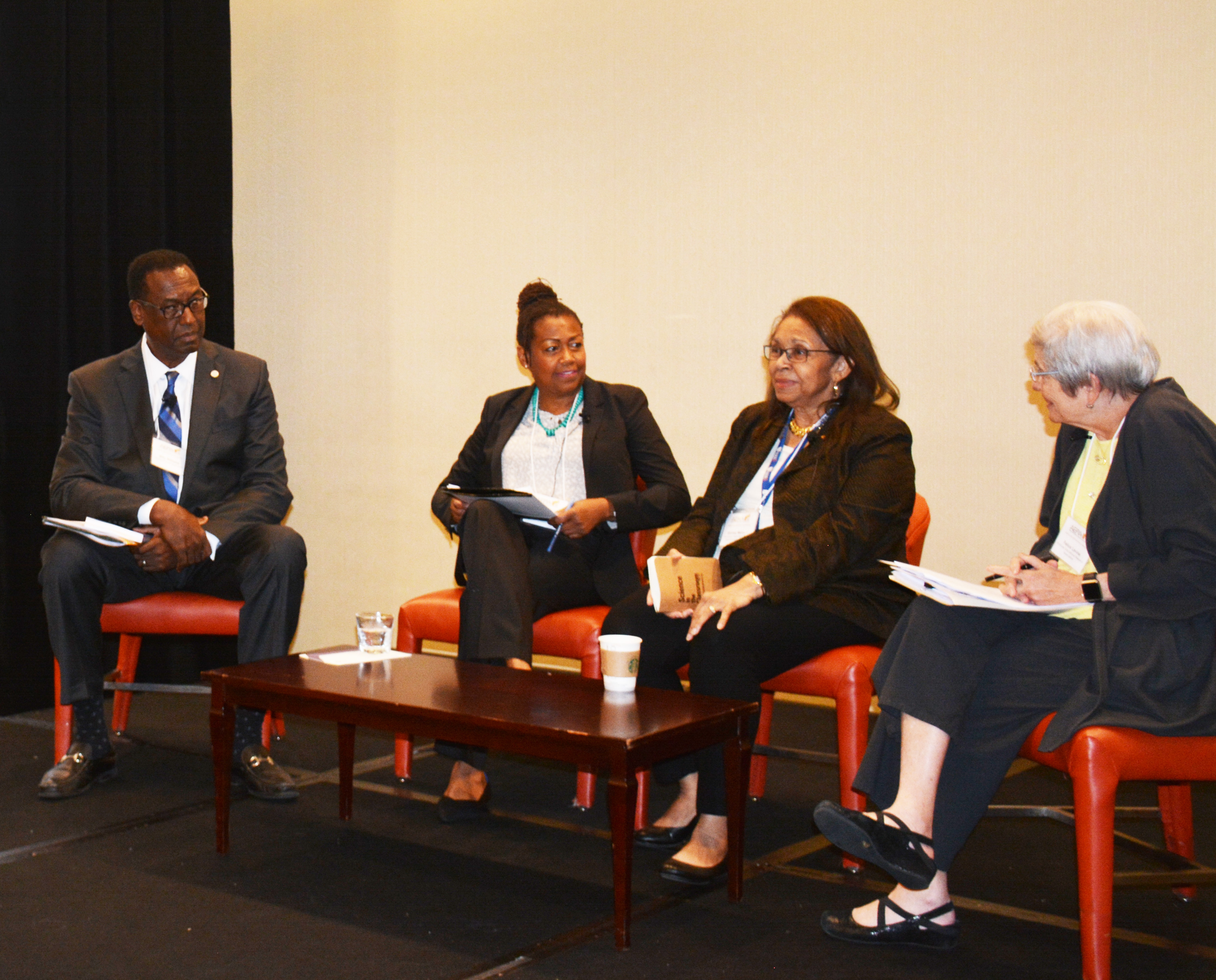
Billy Williams (American Geophysical
Union); Rhonda Davis (National Science
Foundation); Shirley Malcom (American
Association for the Advancement of Science);
Felice J. Levine (AERA) |
In a session on “Federal Funding Opportunities for Education Research,” attendees learned about policy updates and prospective initiatives from Mark Schneider, director of the Institute of Education Sciences (IES); James Griffin, deputy branch chief of the Child Development and Behavior Branch at the Eunice Kennedy Shriver National Institute of Child Health and Human Development (NICHD); and Evan Heit, division director of the Division of Research on Learning (DRL) in the NSF Education & Human Resources Directorate.
Schneider provided an update on changes that were made to the IES FY 2019 Requests for Applications and potential changes to the FY 2020 competition. Griffin explained details of recent updates to policies at the National Institutes of Health, including the enforcement delay to September 24, 2019, of the clinical trial policy for prospective basic science studies involving human participants; opportunities to comment on a draft behavioral and social clinical trial template and proposed registration and reporting requirements for basic science studies; and the inclusion across the lifespan policy. Heit informed attendees of the appointment of Karen Marrongelle as the new assistant director for the EHR directorate and gave updates about several of the NSF 10 Big Ideas where EHR is playing a leading role–NSF INCLUDES and the Future of Work at the Human-Technology Frontier.
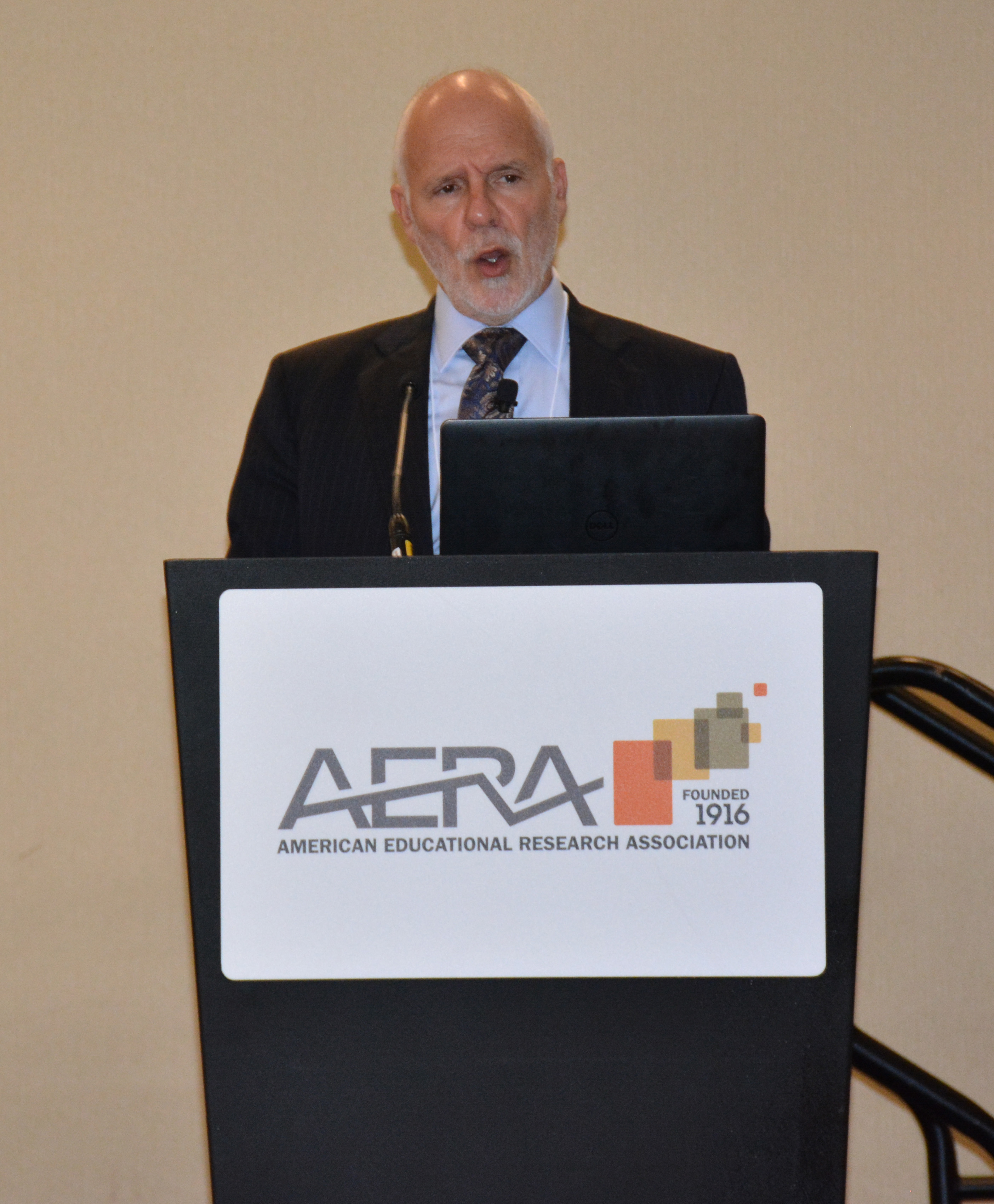
Mark Schneider (IES) |
The day also featured a conversation between Frederick Hess, resident scholar and the director of Education Policy Studies at the American Enterprise Institute, and Michele McLaughlin, president of Knowledge Alliance, on measuring the impact of education research. Hess explained the methodology of the Edu-scholar rankings and how doctoral programs can help position education research scholars to be policy-relevant.
The meeting concluded with a discussion of the use of and support for education research on Capitol Hill. Christopher Buki of Rep. David McKinley’s (R-WV) office spoke about the importance of federal funding for the National Science Foundation (NSF) and his office’s leadership of the dear colleague letter to appropriators encouraging increases to the NSF budget.
Joshua Delaney of Sen. Elizabeth Warren’s (D-MA) office discussed a similar letter in the Senate to request increased spending on the Institute of Education Sciences and spoke of the challenges achieving real increases to the IES budget. Sens. Warren and Bill Cassidy (R-LA) are cosponsors of the College Transparency Act (CTA), legislation to improve the quality of available information on higher education. Pamela Davidson of Cassidy’s office spoke about CTA, the outlook for the reauthorization of the Higher Education Act, and the senator’s commitment to using education research to inform practice and policy.
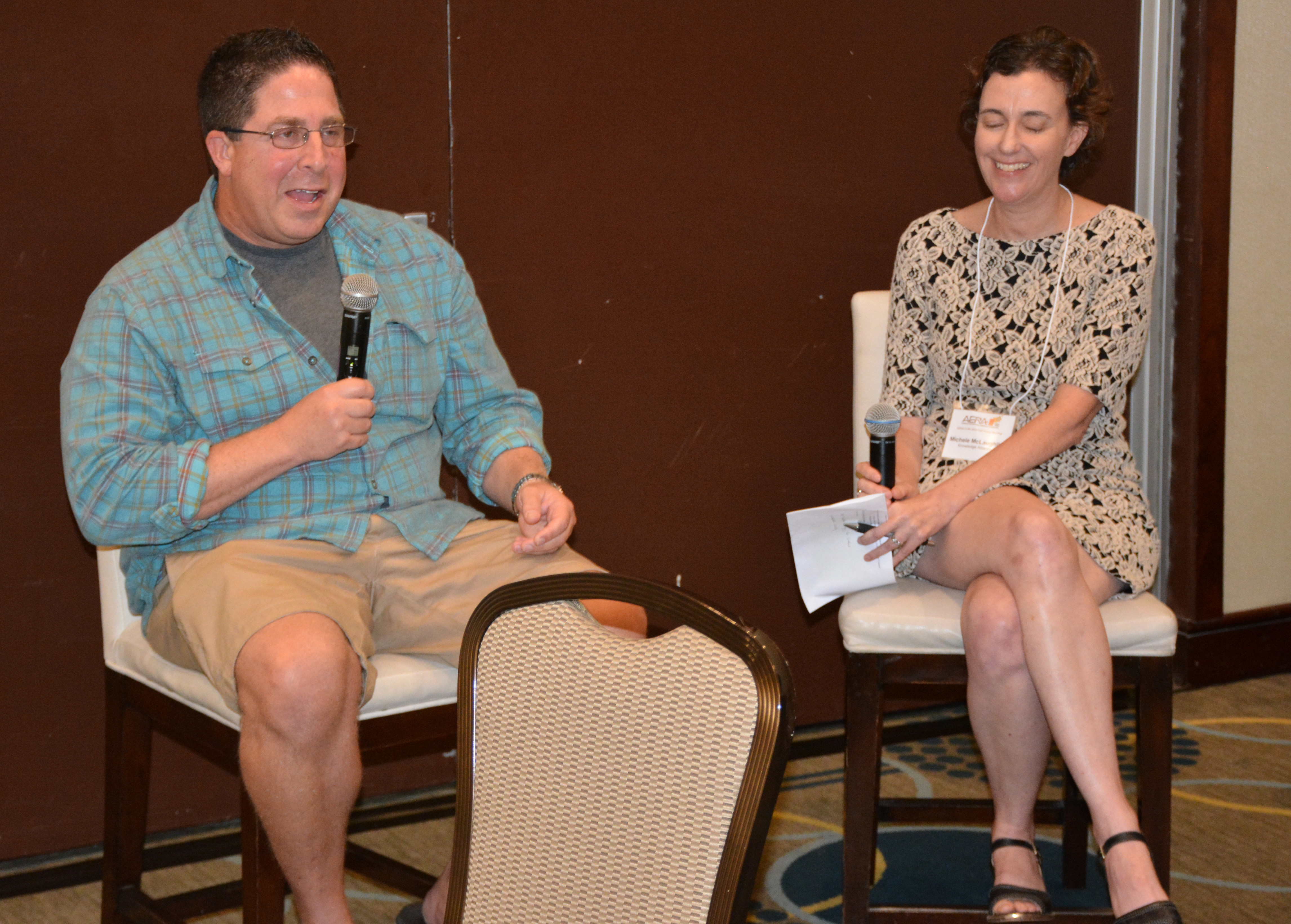
Frederick Hess (American Enterprise
Institute); Michele McLaughlin
(Knowledge Alliance) |
AERA-CURI member institutions (1) examine and collaborate on emerging and persisting issues associated with their research missions, (2) facilitate their engagement in AERA's education and advocacy efforts to promote federal research support and sound research policies, and (3) enhance collaborative efforts among individual scholars within AERA and the academic and research institutions of which they are a part. To learn more about AERA-CURI, click here.